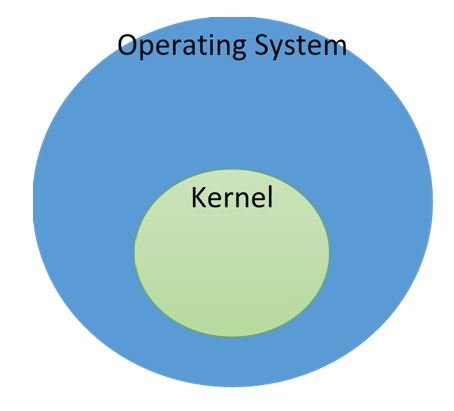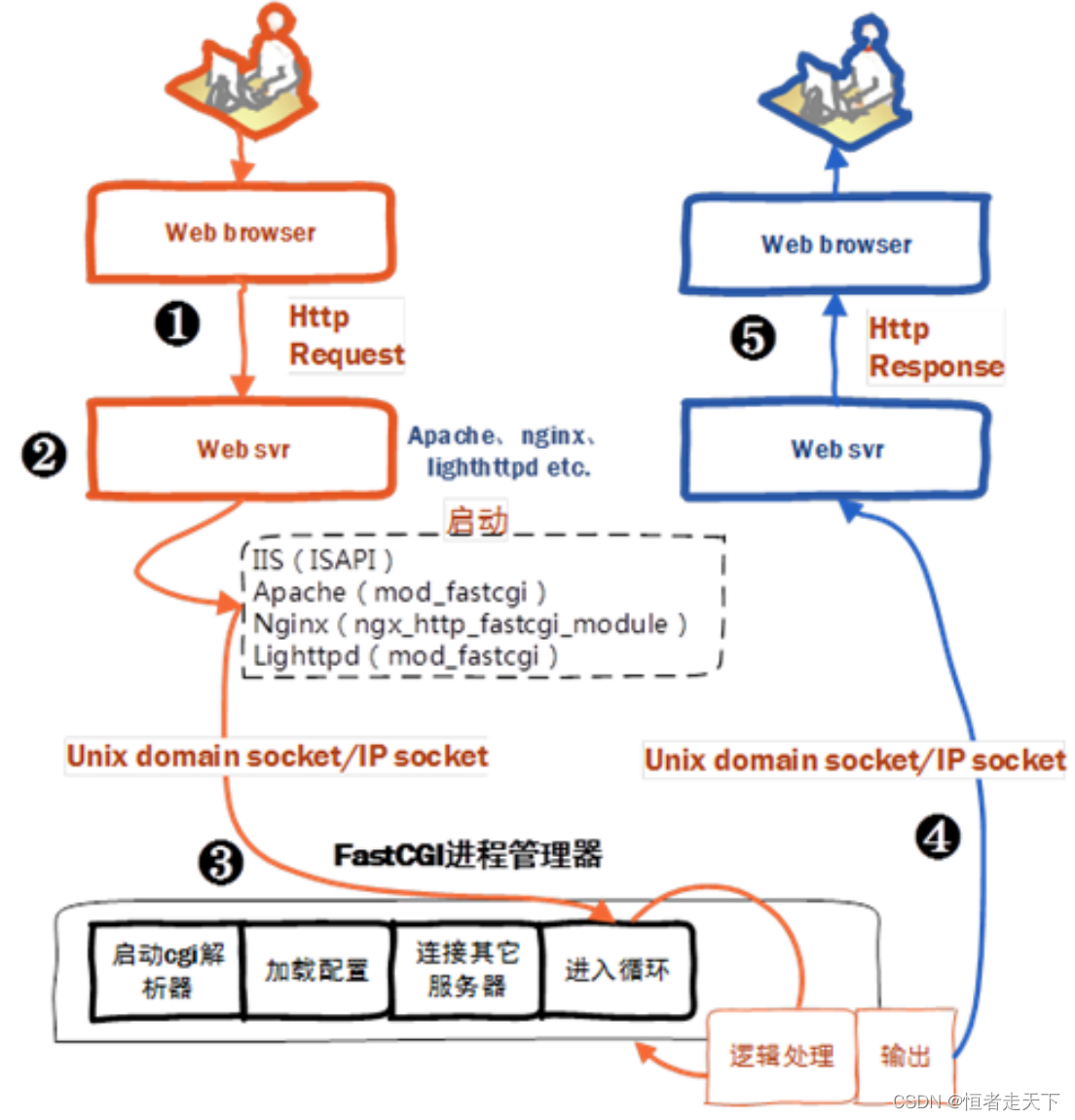操作系统大内核和微内核_内核和操作系统之间的区别
操作系统大内核和微内核An Operating System is a software which contains different programs in it, and the Kernel is one of them. The Kernel is a programs which is close to the hardware of the system and so, it pe
操作系统大内核和微内核
An Operating System is a software which contains different programs in it, and the Kernel is one of them. The Kernel is a programs which is close to the hardware of the system and so, it performs all the tasks of the operating systems which involve a link between both the hardware and the user level applications. The Kernel thus functions at the lowest level of the operating system, performing tasks such as file management, process management, memory management, etc.
操作系统是一种软件,其中包含不同的程序,而内核是其中之一。 内核是一个接近系统硬件的程序,因此,它执行操作系统的所有任务,其中包括硬件和用户级应用程序之间的链接。 因此,内核在操作系统的最低级别运行,执行诸如文件管理,进程管理,内存管理等任务。

Whenever the system is turned ON, the Operating system is the first to be loaded into the system, and the Kernel is the first program among all the Programs of the OS to get loaded into the main memory, and then the rest programs of the Operating System are loaded. A system cannot function without the Operating System, and an Operating System cannot exist without the Kernel. Therefore, every Operating System has a Kernel.
无论何时打开系统,操作系统都是第一个要加载到系统中的程序,内核是操作系统所有要加载到主内存中的程序中的第一个程序,然后是操作系统的其余程序系统已加载。 没有操作系统,系统将无法运行;没有内核,操作系统将不存在。 因此,每个操作系统都有一个内核。
Example: Linux is a widely used Kernel which is used by many Operating Systems like Ubuntu, Kali, etc.
示例: Linux是一种广泛使用的内核,许多操作系统(例如Ubuntu,Kali等)都使用Linux。
内核与操作系统之间的差异 (Differences between the Kernel and the Operating System)
The following are the main differences between the Kernel and the Operating System,
以下是内核和操作系统之间的主要区别 ,
The Operating System is a system software containing various Programs in it while the Kernel is the central Program of the Operating System.
操作系统是一个系统软件,其中包含各种程序,而内核是操作系统的中央程序。
The Kernel performs the lowest level functions of the Operating System like Process management, File management, Memory management, Device management, Input/output communication, etc., while the Operating System performs surplus functions like providing security to the data and files in the system, providing access controls to the User and hence maintaining privacy.
内核执行操作系统的最低级别功能,例如进程管理,文件管理,内存管理,设备管理,输入/输出通信等,而操作系统执行多余的功能,例如为系统中的数据和文件提供安全性,为用户提供访问控制,从而维护隐私。
The Kernel acts as an interface between the user level programs and the hardware whereas the Operating System acts as an interface between the user and the hardware. Here, it is important to note that the Operating system can directly interact with the user as it is system software, but the Kernel cannot do so, because it is just a Program. So, for any sort of information exchange with the user, whether it be the input from the user or output to the user, the kernel performs it through the applications, and these applications are again, a part of the Operating System.
内核充当用户级程序与硬件之间的接口,而操作系统充当用户与硬件之间的接口。 在这里,重要的是要注意,操作系统可以直接与用户进行交互,因为它是系统软件,但内核不能这样做,因为它只是一个程序。 因此,对于与用户进行的任何形式的信息交换,无论是来自用户的输入还是用户的输出,内核都会通过应用程序执行此操作,而这些应用程序又是操作系统的一部分。
Operating System is a System Software which is the first one to get loaded into the main memory as soon as the system is turned on. The Kernel is that Program of the Operating System which gets loaded into the memory before any other Program in the Operating System.
操作系统是系统软件,它是系统打开后第一个加载到主存储器中的软件。 内核是操作系统的程序,它比操作系统中的任何其他程序先加载到内存中。
翻译自: https://www.includehelp.com/operating-systems/difference-between-kernel-and-operating-system.aspx
操作系统大内核和微内核
更多推荐
 已为社区贡献2条内容
已为社区贡献2条内容









所有评论(0)